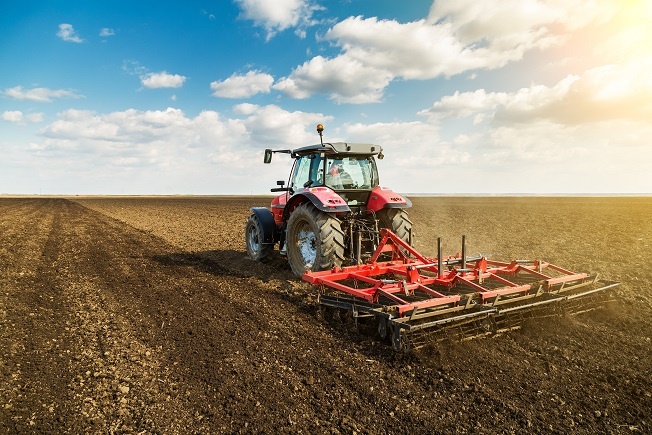
The agricultural industry has one of the poorest safety records of any occupation in the UK and Ireland. As a result 2013 saw the launch of Farm Safety Week – supported by the Farm Safety Association – in an attempt to address the safety issues farmers face on a daily basis.
The latest figures from HSE, highlighted by BBCs Countryfile state that “People working in agriculture make up just 1% of the UK's national workforce and yet account for 20% of deaths at work. Last year another 27 agricultural workers died as a result of an accident at work - that’s two deaths every month. And it’s not just the number of deaths that’s so worrying, at least 15,000 more people have been injured at work.”
With 2017’s Farm Safety Week (24th - 28th July), shining further light on the hazardous risks within farming, Klaus Allion, Managing Director at ANT Telecom, specialists in automated communication and lone worker solutions, asks, are farmers doing enough to protect their workers? - “With those working in the farming sector at risk of injury from operating heavy machinery, vehicles and tools and working with livestock, as well as in unpredictable weather conditions and at times working from a height, how are colleagues and farm owners alerted if someone has an accident and do they have the right escalation processes is in place should an emergency situation occur? What’s more, how can farmers prove they followed the correct procedures in terms of getting help to their worker quickly and efficiently?
The industry as a whole is under pressure and workers are working all hours, often feeling they need to get their work done quickly and as best they can, which could mean that safety standards may not always be fully adhered to. In a recent farmers survey 50% of farmers admitted that they have taken a risk in the last year.
The current fatality rate for agriculture is 18 times higher than that of the five-year average for all industry sectors. In such hazardous environments safety has to remain a high priority – yet farmers’ suboptimal use of communication technology could be leaving workers exposed to unnecessary risks.
The HSEs 2016/17 report into fatalities within the agricultural, forestry and fishing sectors states that transport is the biggest killer for agricultural workers, this includes overturned vehicles and getting into difficulties in or outside a moving vehicle. With the agricultural sector often requiring lone or remote workers, farmers must begin to review the solutions and processes they have in place to make it easier and safer for all workers to alert colleagues to an incident, regardless of where they might be on site.
Thankfully, today’s connective technologies mean that modern panic buttons offer much more functionality than a basic alert; they can automate a range of actions to escalate a response quickly. When pressed – often via an app on a user’s smartphone or digital radio – a panic button not only triggers an alert to notify colleagues of a developing incident, it reports the details of who triggered it and their location. The most effective tools can activate live audio recordings that allow colleagues to listen in and assess what course of action is required, in real time. These recordings are also invaluable for post-incident assessment. Finally, to underpin the approach, panic button technology can capture a real-time log of activity to satisfy audit requirements and demonstrate to staff that their safety is a priority.
The application of this kind of innovation is common place in other sectors, including manufacturing, social care and healthcare so why not farming?
Historically, the agricultural industry might have been slow to invest in such technology due to common misconceptions around cost. However, now that there are a number of new devices and solutions available, deployment is relatively inexpensive with the price of failing to act far more damaging.
Farmers have a duty of care to their employees and as the regulatory scrutiny of corporate health and safety measures increases, they must renew their efforts to ensure workers, and particularly those working alone, are adequately protected.
In a farming environment where the numbers of work related incidents are so high, automated lone worker technology can help make farms a safer place. Ignoring their duty of care is simply something that farm owners can ill afford to do.
Are you a farmer concerned about your lone worker safety? If you’d like to speak with our team of experts – call us on 01494 833123.
Follow ANT Telecom on Twitter and LinkedIn for further news updates.





